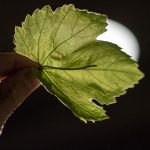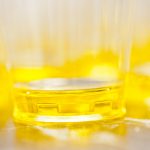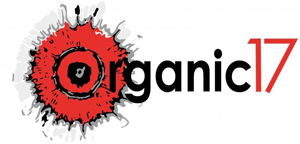Zwischen dem Katholischen und dem Islamischen gibt es den einen oder anderen Unterschied: Mohammed statt Jesus, Mekka statt Vatikan, Moschee statt Kirche, Koran statt Bibel, Ornamente statt Bilder, Gebetsteppich statt Sitzbank, Sabbat statt Sonntag und – jetzt kommt’s – Tee statt Wein. Zugegeben, die Liste ist klischeehaft. Das darf sie durchaus sein, denn sie führt mich recht elegant zu meiner Geschichte.
Die Möglichkeiten zum Alkoholgenuss formuliert die Scharia völlig spaßfrei: verboten ist verboten. Ebenso unzweifelhaft spielt in Marokko das islamische Recht auch im bürgerlichen Alltag eine prägende und gestaltende Rolle. Marokko präsentiert sich als islamischer Staat, ohne dass uns in dem guten Monat unseres Gastseins hier Fanatismus unangenehm aufgefallen wären.
Alkohol kommt im Leben der MarokkanerInnen einfach nicht vor. Zum Essen wird picksüßer Tee serviert. Oder auch Wasser aus der Flasche, wenn man unbedingt will. Alkoholisierte sieht man in Marokkos Öffentlichkeit überhaupt nicht. Dies fällt insbesondere bei geistig und sozial Unterprivilegierten auf, die zwar armselig schmutzig um Almosen bitten, aber nicht elendig stinkend im Suff delirieren. Viele Menschen begegnen einem zwar arm aber nicht alkoholkrank. Dies führt zum Beispiel zu der in Österreich unvorstellbaren Situation, dass Bettler zwar etwas versteckt, aber dennoch selbstverständlich gewürdigter Teil der Gesellschaft sind.
Wir hatten uns im Vorfeld keine Fragen dazu gestellt. Also musste die Erkenntnis erst sickern, dass Alkohol in Marokko von den Gläubigen nicht nur nicht getrunken werden darf, sondern konsequenterweise auch nicht kaufbar ist. Bier – auch alkoholfrei – Wein, Spirituosen gibt es ganz einfach nicht. Ausgenommen sind nur die Bars der Luxushotels – in denen wir nicht verkehren – und sehr seltene Drugstores.

Nicht dass uns der Alkohol abgegangen wäre, doch gab es den einen oder anderen lauen Abend auf einer Dachterrasse, an dem ein Flascherl Bier, z. B. beim Anheizen des Tachines-Feuers, oder auch ein Glaserl Wein zum Ausklang eines ereignisreichen Tages gut gepasst hätte. Alleine, es ergab sich über fünf Wochen keine Möglichkeit.
Bis wir dann nach Essaouira, der blütenweißen Küstenstadt an der Atlantikküste, kamen. Im Stadtplan der Gratisapp maps.me stach uns in einer Randzone der Medina ein Einkaufswagerl mit „drugs/alcohol“ ins Auge. Da mussten wir hin, sozusagen fact finding mission. Als wir aus dem engen Gassengewirr endlich herausgefunden hatten, standen wir vor dem Nichts. Nicht nur der Shop, sondern gleich der ganze Häuserblock – UNESCO-Weltkulturerbe hin oder her – war geschliffen. Unsere Vorfreude war so radikal wie möglich dem Erdboden gleichgemacht worden. Zufall oder nicht, wir mussten fast den Eindruck gewinnen, dass hier höhere Mächte im Spiel gewesen sein müssen.

Wir ließen uns nicht entmutigen. Und schon einen Tag später wurden wir in Marrakesch tatsächlich fündig. Wir folgten dem Tipp eines deutschen Touristen und wanderten nach der Besichtigung des Jardin Majorelle zu einem der großen Carrefour-Markets. Dort angekommen führte durch einen wirklich dezenten Hintereingang eine steile Stiege in den Keller.

Und dort gab es dann doch tatsächlich eine kleine aber feine Auswahl an Alkohol. Streng beäugt von zwei grimmig dreinschauenden Securities mussten wir nicht lange suchen, da sprang uns schon eine marokkanische „Perle noire de mogador“ mit Bio-Siegel in den Einkaufskorb.

Durch ein Obstsackerl aus Papier vor den Blicken der Restwelt anonymisiert fand der Bio-Wein sanktionslos den Weg auf die schmucklose Dachterrasse unsers Hotels. Beim dann folgenden Abendessen „im Schatten“ der Mosc Koutoubia samt (mahnendem?) Singsang des Imam hat uns die in der Tat schwarze Perle sehr charmant begleitet. Ich denke fast, dass wir uns die geschmackliche Qualität fast ein wenig schön redeten.

Die Frage, ob nun das marokkanische defacto Alkoholverkaufsverbot mehr Vor- als Nachteile mit sich bringt, konnten wir an dem Abend (noch) nicht klären. Wie wir auch (noch) nicht gesungen haben, denn das Lied „Marokkanischer Wein“ war uns noch nicht so geläufig.
Moroccan wine – an approach
Between Catholic and Islamic people, there are a couple of differences: Mohammed instead of Jesus, Mecca instead of Vatican, mosque instead of church, Koran instead of Bible, ornaments instead of pictures, prayer rug instead of bench, Sabbath instead of Sunday and – here we come – tea instead of wine. I admit, the list is clichéd. But that’s okay, because it quite elegantly leads me to my story.
The possibilities for drinking alcohol are formulated completely free of fun by the sharian law: it’s forbidden. Just as undoubtedly, in Morocco Islamic law also plays a decisive and shaping role in everyday life in the bourgeoisie. Morocco presents itself as an Islamic state, without us noticing fanaticism unpleasantly in the good month of our stay.
Alcohol is simply not present in the lives of Moroccans. Extremely sweet tea is served for dinner. Or bottled water, if you really want it. You do not ever see drunkards in Morocco’s public. This is particularly noticeable in the spiritually and socially underprivileged, who, although miserably filthy, ask for alms, but who still are not smelly alcoholics. One encounters many poor but no alcoholics. This leads, for example, to the unimaginable situation in Austria that, although beggars are hidden somewhat, they are, of course, acknowledged parts of society.
We did not ask ourselves any questions in advance. So, the realization that alcohol in Morocco must not only not be drunk by the believers, but consequently also not be bought, had to seep in the first place. Beer – also non-alcoholic – Wine, spirits are simply not available. Excluded are only the bars of the luxury hotels – in which we do not operate – and very rare drugstores. Not that we missed alcohol, but there was one or the other mild evening on a roof terrace, where a bottle of beer, for example when heating the Tachines fire, or even a glass of wine to end a busy day would have fit well. Alone, there was no possibility for more than five weeks.

Until we came to Essaouira, the whitewashed coastal city on the Atlantic coast. In the map of “maps.me” a marginal zone of the medina a shopping bag with “drugs/alcohol” caught our attention. We had to go there, for a fact-finding mission. When we finally found out of the narrow alleys, we were left with nothing. Not just the shop, but the whole block – UNESCO World Heritage Site! – was gone. Our anticipation had been razed to the ground as radically as possible. Coincidence or not, we almost had to get the impression that higher powers had to be involved here.
We were not discouraged. And a day later, we actually found something in Marrakech. We followed the advice of a German tourist and after visiting the Jardin Majorelle hiked to one of the major Carrefour markets. When we arrived we discovered a discreet back entrance and a steep staircase into the basement. And there actually was a small but fine selection of alcohol. Strictly eyed by two grim-looking Securities, we did not have to search for a long time, when a Moroccan „Perle noire de mogador“ with an organic seal jumped into our shopping basket.
Anonymised by a bag of paper in front of the eyes of the rest of the world, the organic wine found its way without sanction to the unadorned roof terrace of our hotel. At the following dinner the Mosc Koutoubia together with (reminding?) Chant of the Imam, the indeed black pearl accompanied us very charmingly. I almost think we knowingly overrated the taste quality a little bit. The question of whether the Moroccan alcohol sales ban has more advantages than disadvantages, we could not (yet) clarify the evening. As we have not (yet) sung, because the song “Moroccan wine” was not yet so familiar to us.

Beitrag von

- Mein Herz schlägt beruflich seit 25 Jahren für eine ökologisch-tiergerechte Landwirtschaft. Die Zukunft der Landwirtschaft kann nur so aussehen! Ich sehe es als meine Berufung, ProduzentInnen und KonsumentInnen zusammen zu bringen.
Aktuelle Beiträge
 Organic14. Oktober 2019Mit dem Fahrrad durch Bio-Österreich – Teil 2: Südlich der Alpen
Organic14. Oktober 2019Mit dem Fahrrad durch Bio-Österreich – Teil 2: Südlich der Alpen Alle Artikel23. Juni 2019Weinblätter zum Trinken – Eine erstaunliche Verkostung
Alle Artikel23. Juni 2019Weinblätter zum Trinken – Eine erstaunliche Verkostung Organic13. Juli 2018Bio-Visionen live im Radio – Organic17 gehört gehört
Organic13. Juli 2018Bio-Visionen live im Radio – Organic17 gehört gehört Organic12. März 2018Mani Bio-Olivenöl: Einmal Wien – Mani und retour
Organic12. März 2018Mani Bio-Olivenöl: Einmal Wien – Mani und retour

